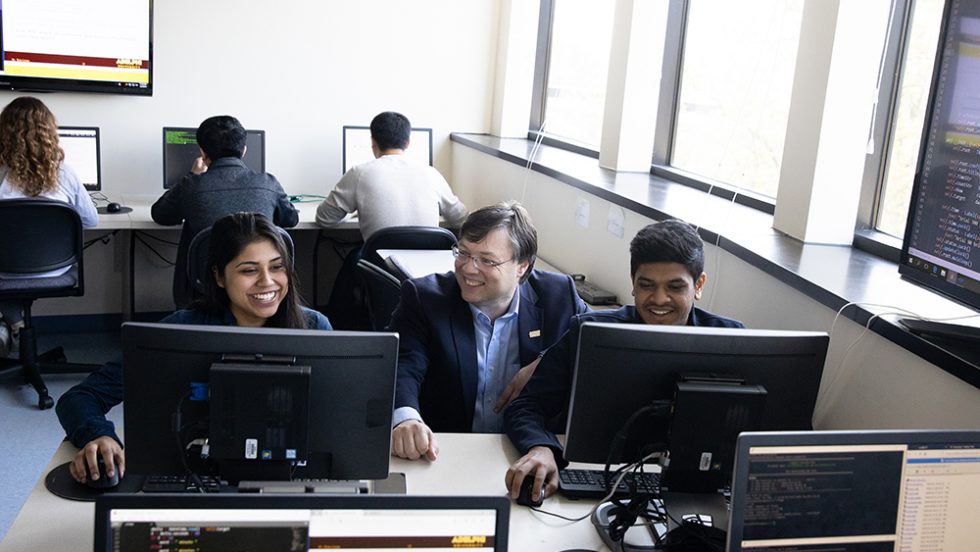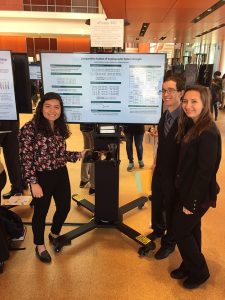
Here in New York, too few science students were trained to write the custom code required for high-level research. Adelphi answered the need by creating the first minor in scientific computing in New York state, in partnership with Brookhaven National Laboratory.
Most people think scientists spend their days in a lab or in the field doing experiments. But in the 21st century, scientists spend a great deal of time sitting in front of a computer, extracting insights from data they’ve collected. Computers, not test tubes and telescopes, are scientists’ most important tools.
That’s why Adelphi’s scientific computing minor—the first and only one in New York—is such a game changer. Developed in partnership with the U.S. Department of Energy’s Brookhaven National Laboratory in nearby Upton, New York, the program gives students majoring in sciences like biology, chemistry and physics the computer and data analysis skills needed for an advanced degree in their discipline or for work in a research setting.
“There’s an urgent need for scientific computing skills,” said Kees Leune, PhD, assistant professor of mathematics and computer science and head of the program. “Scientists get a lot of data, and the answers to many of their questions are in that data. The problem is finding that answer. It’s a needle in a haystack situation.”
Computers Find Answers in Mountains of Data
Computers can find the needle in the haystack because they can crunch mountains of data and reveal insights—if you know how to program them to do it.
For example, a computer can test a product design without building a prototype or conducting a lab experiment. The computer can do it virtually, via mathematical model. Computers can also find patterns in massive amounts of information that the human brain cannot, in ways only imagined in the past.
Adelphi’s scientific computing program teaches students to write custom code that can analyze and model data and find those answers.
The minor was launched in the Fall 2019 semester. There are courses in calculus, statistics, operating systems, computer programming, applied problem solving, data analytics and a survey of scientific computing.
Students learn to write code in R and Python, two programming languages widely used by both students and scientists. To keep the academic program interdisciplinary and make it flexible enough to fit within a wide range of majors, 6 credits in computational topics can come from the student’s major.
“A lot of our students are taking classes for their major and already on a trajectory to fulfill the scientific computing minor requirements,” Dr. Leune said. “So it can be combined with almost any major. We are tailoring the educational experience to give the student the classes that they will benefit from.”
Success Stories

Jennefer Maldonado ’20 (left) presents her findings at Adelphi’s annual Research Day.
Even though the minor has been around for less than two years, there are already success stories.
Jennefer Maldonado ’20, who graduated with a BS in mathematics and computer science and a minor in scientific computing, did an internship at Brookhaven National Lab. She worked alongside engineers at the billon-dollar National Synchrotron Light Source II, where she wrote code for beamline simulations that study atomic structures. Her code is still being used at Brookhaven.
Maldonado is now a graduate student at Stony Brook University studying computational applied mathematics. “Graduating with a minor in scientific computing will give me an edge over other students applying to internships, graduate programs or jobs in the future,” she said.
She’s not wrong. The U.S. Bureau of Labor Statistics projects that the demand for computing and mathematics jobs will grow 33 percent from 2019 to 2029, much faster than other fields.
“We’re filling a big need in the scientific profession with this minor,” Dr. Leune said. “And we’re preparing our students majoring in science to succeed in their careers.”